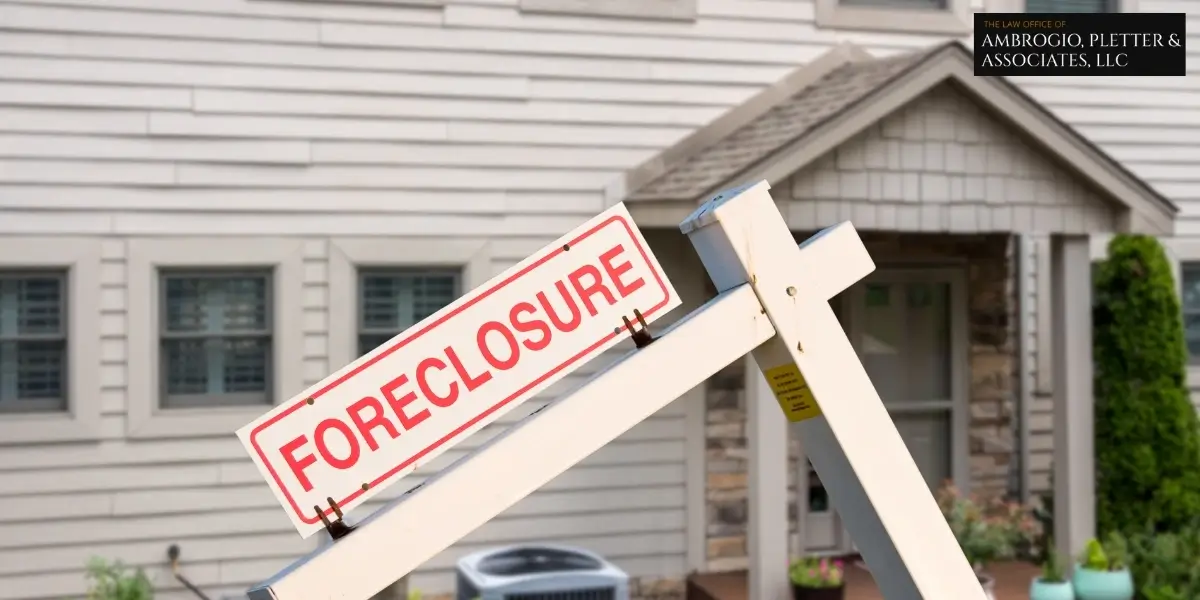Stratford Foreclosure Lawyer

Stratford Foreclosure Attorney
There are ways to avoid or stop foreclosure that do not involve bankruptcy. Depending on your financial situation and your bank’s willingness to work with you, a loan modification, foreclosure mediation, short sale, forbearance agreement or deed in lieu of foreclosure are all available options. For some homeowners, especially those with second mortgages or high amounts of unsecured debt, Chapter 13 bankruptcy may still be the best option. Before making any decisions, it’s wise to speak with a Stratford Foreclosure Lawyer who understands local foreclosure laws and remedies.
The number of clients facing foreclosure has soared since 2008. To address this, banks have become increasingly responsive to loan modification applications, and many clients are seeing their monthly payments reduced. This is due in part to President Obama’s new loan modification guidelines and in part due to the mortgage industry’s desire to get homeowners who can afford their homes back on track and out of default. If loan modification is not feasible, filing bankruptcy will still provide an opportunity to stop a foreclosure on your home. During these trying times, you do have options.
Consult an experienced debt relief and real estate lawyer at Ambrogio, Pletter & Associates, LLC, in Stratford, Connecticut, for help putting a stop to foreclosure proceedings, help filing bankruptcy and help starting anew on your finances. Contact our Stratford and Bridgeport law office by calling 475-365-0408. We offer a free consultation. We have served Connecticut’s legal needs since 1982. Learn more about what our past clients say about the representation we provided them.
Using Loan Modifications To Stop Foreclosure
A home loan modification allows you to modify the terms of your existing mortgage in order to reduce your monthly mortgage payments. If your bank agrees to modify your loan, you may be able to do some or all of the following:
- Reduce interest rates
- Roll the arrearage (missed payments) into the loan’s principal, bringing your loan “current” without making back payments
- Reduce the principal you owe
- Extend the term of your loan
If you are struggling to get your mortgage bank to talk to you about a home loan modification, ask us how Connecticut’s foreclosure mediation program can help.
Using Chapter 13 Bankruptcy To Stop Foreclosure
If you are unable to get a home loan modification, Chapter 13 bankruptcy may be another viable option for saving your home. With a Chapter 13 bankruptcy, you will be required to pay past due mortgage payments and a portion of unsecured debts over a three- to five-year period.
In Chapter 13 bankruptcy, you create a debt reorganization plan that meets the approval of the bankruptcy court. The repayment plan gives you the opportunity to bring mortgage payments up-to-date and reduce the amount you pay on other bills. In some situations, refinancing may be an option while in Chapter 13 repayment.
A bankruptcy filing triggers an automatic stay, which makes creditors stop foreclosures and other collection attempts. It may not be too late to save your home, even if a foreclosure auction has taken place.
Please note, Chapter 7 bankruptcy can also stop foreclosure and allow you to discharge unsecured debt such as credit cards, medical bills and certain kinds of loans.
Using Short Sales And Deeds In Lieu To Stop Foreclosure
As a Stratford, CT law firm that practices in the areas of debt relief and real estate, we have a useful combination of skills when it comes to negotiating short sales. Short sales are necessary when a homeowner wants to sell his home but owes more than the home is worth. The process allows you to close your mortgage by selling your home for whatever amount you can get, subject to approval by the bank. For example, if you bought your home for $400,000, owe $350,000 to the bank, and the home is now worth $300,000, your bank may agree to consider your mortgage obligation discharged if you are able to sell your home for $275,000.
A deed in lieu of foreclosure transaction is a similar way to prevent or stop foreclosure. Rather than negotiating a short sale or home loan modification, or going through the expense and delay of a foreclosure, the bank may agree to take the deed to the house back from you and consider the mortgage closed.
A number of issues must be considered in short sales and deeds in lieu of foreclosure, and our Stratford Foreclosure Lawyer can assist you in negotiations with your mortgage company. Most importantly, we’ll help you answer the critical first question: Which of these options is best for your unique circumstances?
Contact Us For A Free Attorney Consultation About Stopping Home Foreclosure
There are a number of options available for avoiding foreclosure on your home.
We can help you find the light at the end of the tunnel, help you take control of your finances and get a fresh start. Contact Ambrogio, Pletter & Associates, LLC, to learn how we can help you.
Take Action Today & Begin Moving Forward
Attorney Tim Pletter works directly with his clients, and most of your contact will be directly with him. Please contact our Stratford, Connecticut, office today to arrange your free consultation


